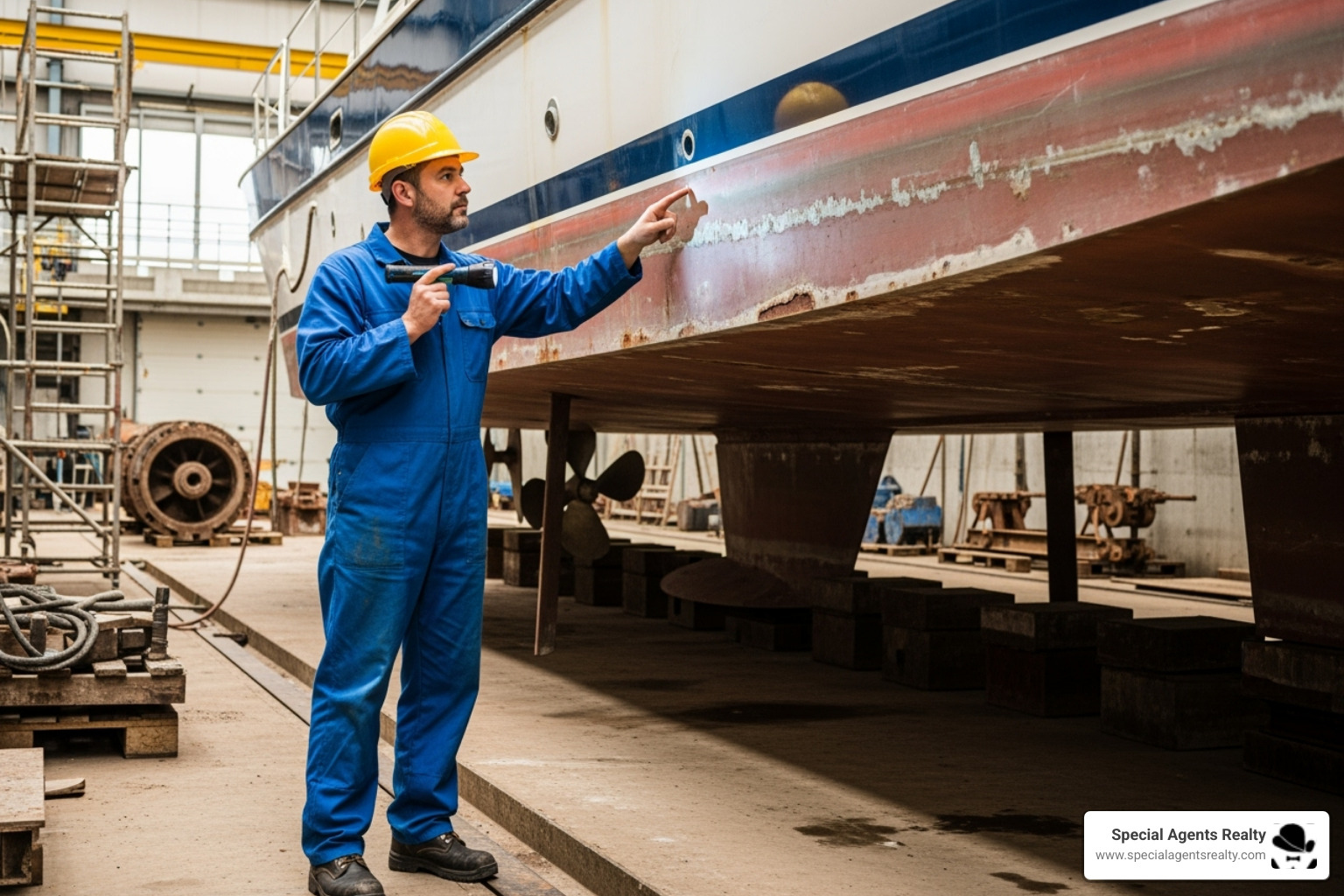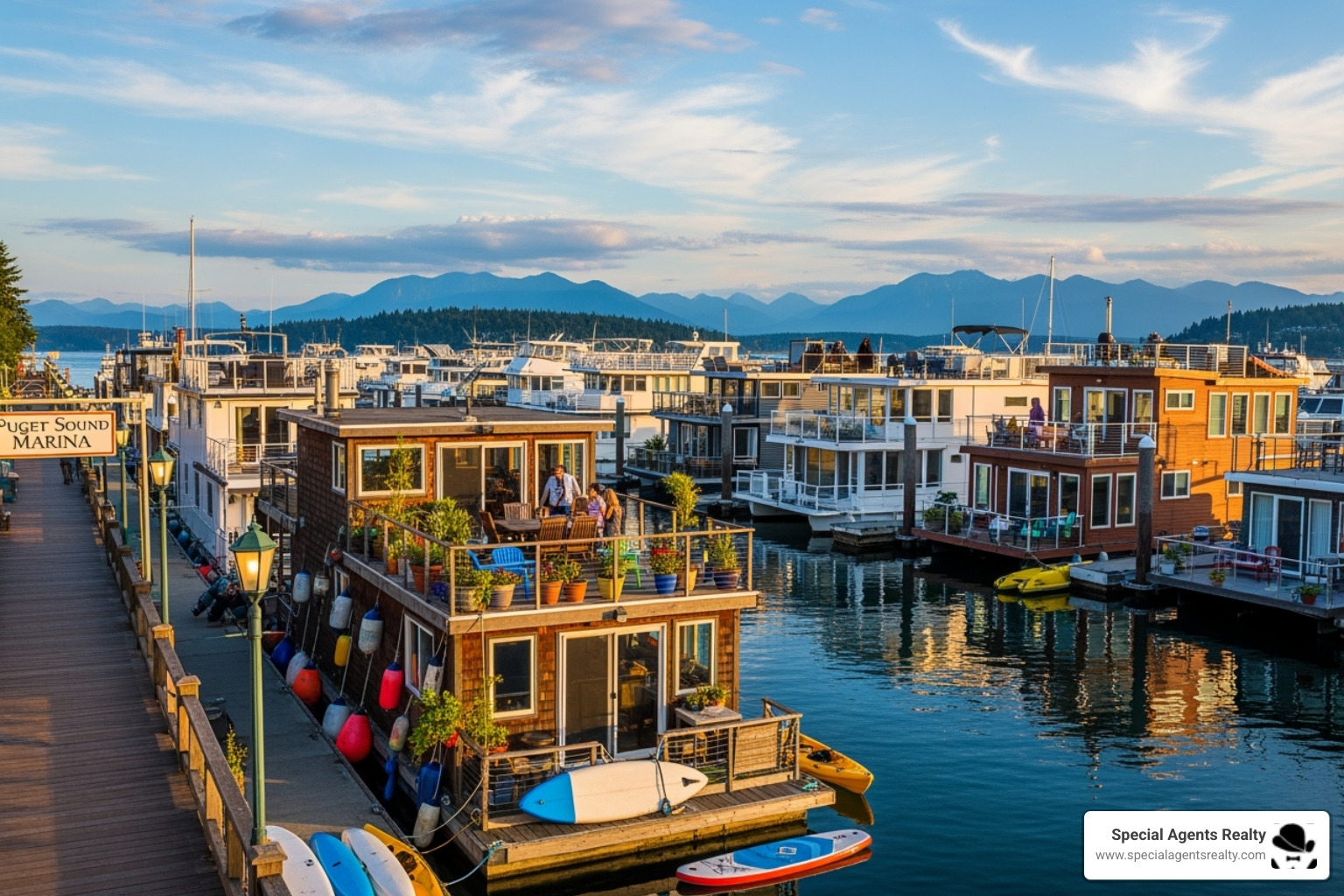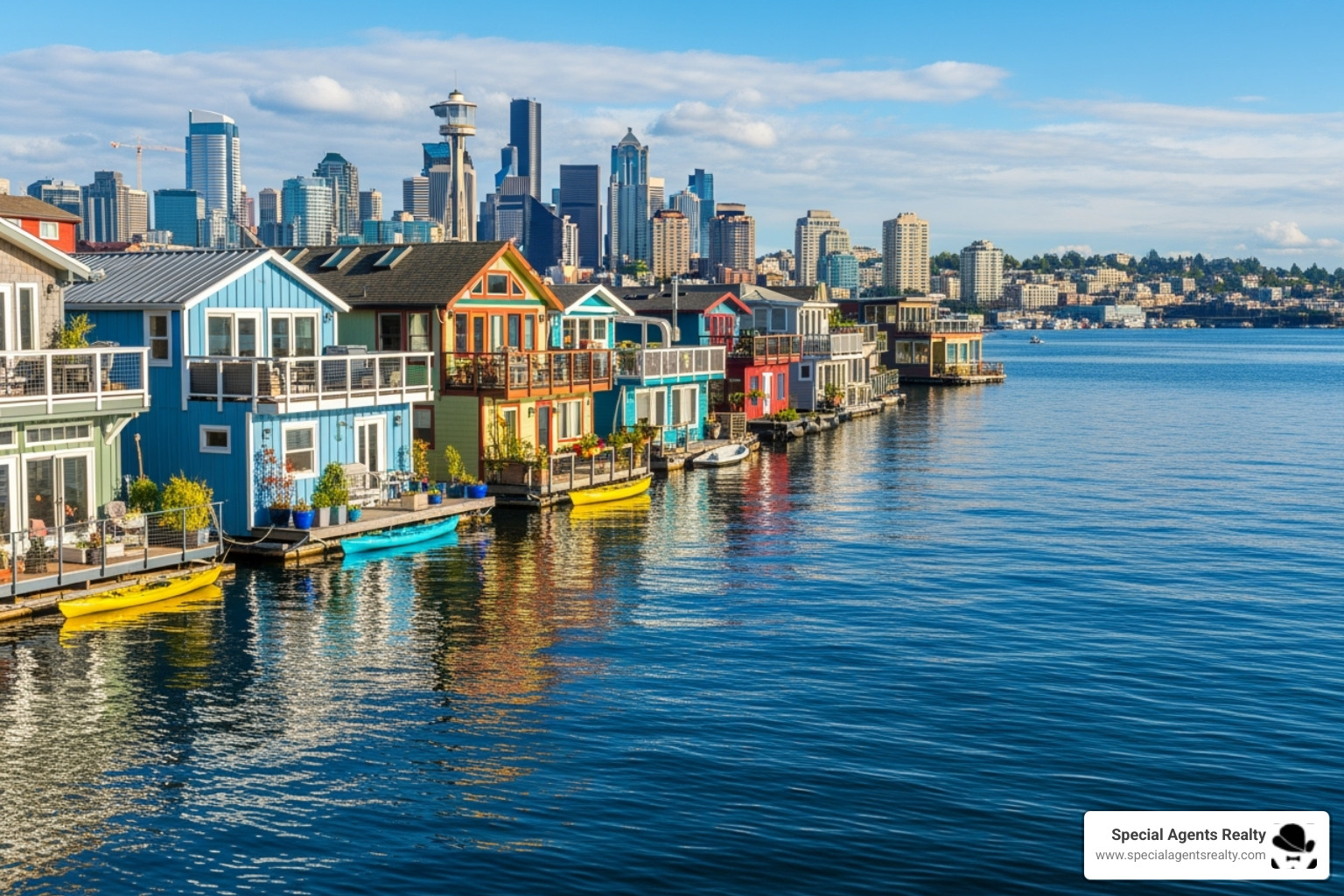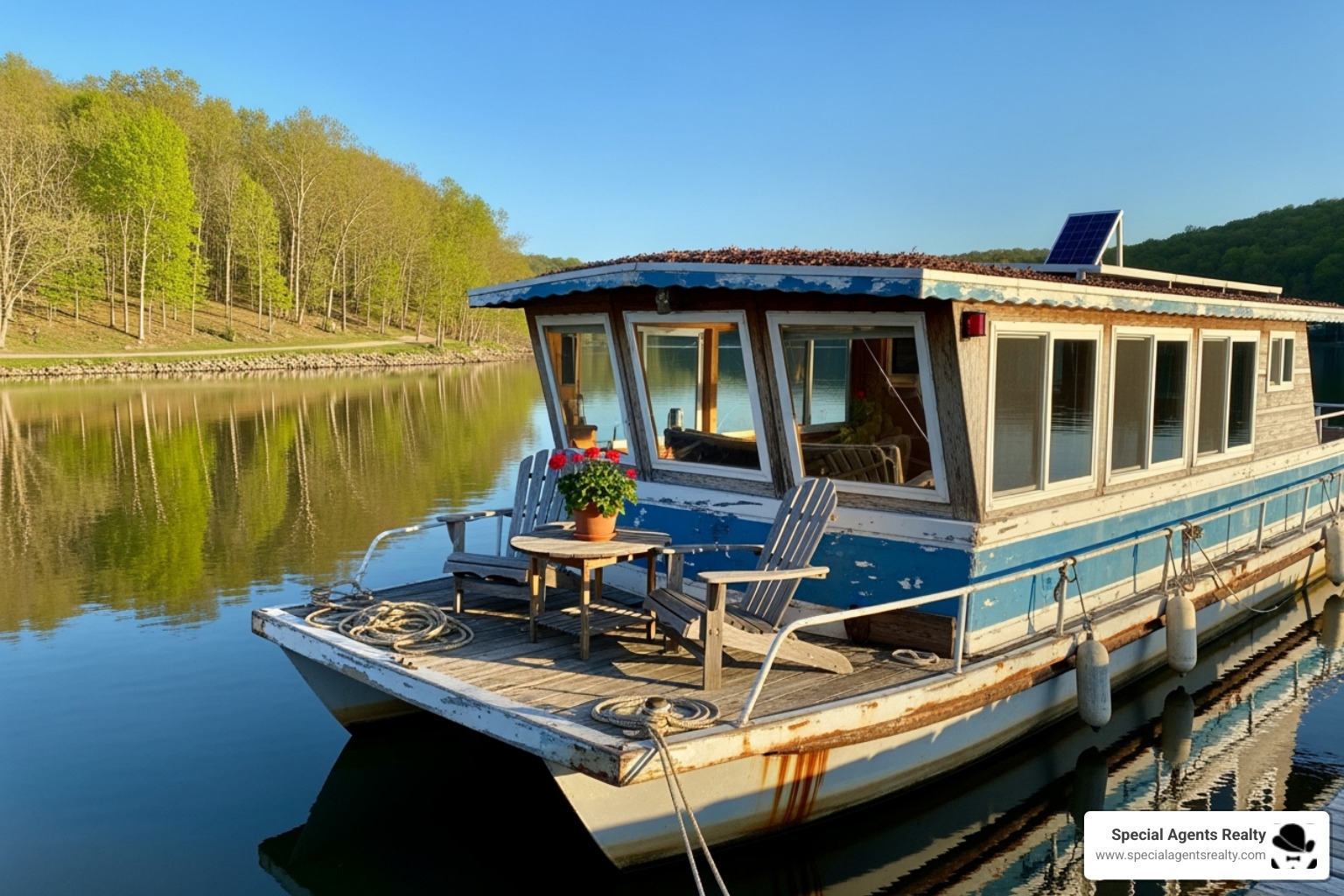
Why Steel Houseboats Stand Out in the Floating Home Market
Steel houseboats for sale offer a unique combination of durability, spaciousness, and customization that appeals to a wide range of buyers. For decades, steel hulls have been a top choice for floating homes due to their exceptional strength and longevity. Unlike fiberglass or wood, steel withstands impacts, supports heavy loads, and can last for generations with proper maintenance, making it ideal for full-time living.
The market is diverse, with listings on major marketplaces like Boat Trader showing a wide variety of options. You can find everything from vintage models needing restoration to modern luxury vessels. Prices typically range from under $10,000 to nearly $1 million, with common sizes between 40 and 70+ feet. Popular models include custom builds and brands like Skipperliner, River Queen, and Gibson.
Many steel houseboats are self-propelled, while others are designed as permanent floating homes. They often feature multiple bedrooms, full kitchens, and spacious decks—essentially everything you'd expect in a traditional home, but with a much better view.

Why Choose a Steel Hull? The Advantages Explained
When choosing a floating home, the hull material is a critical decision that impacts your investment, lifestyle, and peace of mind. For many, steel is the clear winner, offering a unique combination of strength, stability, and design flexibility. While fiberglass and aluminum have their merits, steel houseboats for sale attract buyers who prioritize durability and spacious living.
Here's how steel compares to other popular hull materials:
| Feature | Steel | Fiberglass | Aluminum |
|---|---|---|---|
| Durability | Excellent (highly impact-resistant) | Good (can crack on heavy impact) | Very Good (corrosion-resistant, light) |
| Cost | Moderate to High (initial build/repair) | Moderate (mass-produced, easier repair) | High (specialized welding, material cost) |
| Maintenance | Moderate (rust prevention, painting) | Low (gel coat upkeep, waxing) | Low (less corrosion, easy cleaning) |
| Repairability | Excellent (welding is strong) | Good (patching, gel coat repair) | Good (specialized welding, material cost) |
| Longevity | Exceptional (decades, with proper care) | Good (20-40 years) | Very Good (30-50 years) |
| Stability | Excellent (heavy, deep draft) | Good (depends on design) | Moderate (lighter, can be less stable) |
The Best Durability and Safety
Steel hulls are built to last. Their exceptional impact resistance means an accidental bump against a dock is unlikely to cause significant damage, unlike fiberglass which can crack or aluminum which can dent. This durability is essential for protecting your investment and ensuring safety on the water.
The longevity of a well-maintained steel houseboat is remarkable, with many vessels providing comfortable homes for fifty years or more. In terms of safety, steel also offers superior fire resistance compared to other materials. The weight and structural integrity of a steel hull contribute to excellent stability, providing extra security in rough weather, which is invaluable in regions like Puget Sound or the Great Lakes.
Design Flexibility and Spacious Living
Steel's strength allows builders to create open floor plans and multi-level designs without the need for numerous support beams, resulting in spacious, residential-style interiors. The material's heavy load capacity means you can include full-sized appliances, real furniture, and all the comforts of a traditional home, like a washer and dryer.
Custom builds are common with steel because the material accommodates unique designs. Whether you want a rooftop deck, floor-to-ceiling windows, or a dedicated home office, steel makes it possible. This focus on customization potential and living space over speed is what makes steel ideal for liveaboards. These are floating homes designed for comfort and long-term living, not just weekend visits.
Life Aboard: Features, Amenities, and Lifestyle
Living on a steel houseboat connects you to nature in a way a traditional home cannot. It's a lifestyle defined by waking up to water views and the gentle sway of your home.
Modern steel houseboats for sale often come equipped with the comforts of a land-based home. Galleys (kitchens) feature full-size appliances, heads (bathrooms) are plentiful, and staterooms (bedrooms) are surprisingly spacious. What truly sets them apart are the outdoor spaces, like expansive upper decks perfect for barbecues or sundecks with hot tubs. Behind the scenes, reliable electrical, plumbing, and HVAC systems ensure year-round comfort.
Common Onboard Features and Systems
Steel houseboats are remarkably self-sufficient. Electrical systems often include generators for off-grid power, with solar panels becoming an increasingly popular addition. Shore power connections allow you to plug into marina electricity. For water management, large water tanks store fresh water, while modern sewage treatment systems handle waste responsibly. Galleys are typically equipped with full-size appliances, and many larger models can accommodate a washer and dryer. Propane systems often power cooking appliances and water heaters.
The Pros and Cons of Living on a Steel Houseboat
While rewarding, the houseboat lifestyle isn't for everyone. It's important to weigh the benefits against the challenges.
Pros:
- Freedom and Connection to Nature: Many houseboats are self-propelled, allowing you to explore new waterways. You'll live in close harmony with the natural environment.
- Community: Marina neighborhoods often foster tight-knit communities.
- Lower Property Taxes: You typically pay moorage fees instead of property taxes, which can be a significant saving.
Cons:
- Moorage Fees and Maintenance: Moorage can be expensive ($800+ per month in some areas), and you are responsible for all maintenance. Steel hulls require regular upkeep, including periodic haul-outs for protective coating.
- Space Limitations: Even large houseboats have less space than a typical house, requiring a minimalist mindset.
- Complex Regulations: Marinas, counties, and states have varying rules for liveaboards, waste disposal, and vessel registration that require careful research.
Your Essential Guide to Finding Steel Houseboats for Sale
Ready to find your perfect floating home? Navigating the market for steel houseboats for sale requires careful planning. A thorough pre-purchase inspection by a professional marine surveyor is not optional—it's essential. This can spot hidden issues and save you thousands in the long run. It's also wise to arrange financing and insurance early in your search, as marine lenders and insurers have specific requirements.

Key Considerations When Buying a Used Steel Houseboat
Buying used can be a great value, but diligence is key. The hull's condition is your top priority. Look for signs of pitting or corrosion, and insist on a professional surveyor using ultrasound testing to measure the hull's thickness. Reviewing maintenance records will reveal how the vessel was cared for. Also, have a marine mechanic inspect the engine, noting its hours and service history. Finally, carefully examine the electrical and plumbing systems for corrosion, outdated wiring, or leaks, as they must meet stringent marine standards.
Essential Pre-Purchase Inspection Checklist:
- Hull Inspection: Visual check for rust and dents, plus ultrasound testing for thickness.
- Anode Check: Ensure sacrificial anodes are present and functional.
- Engine(s) Inspection: A mechanic's report on condition, hours, and service history.
- Electrical System: Verify wiring, batteries, inverter, and shore power connections.
- Plumbing System: Test all water tanks, pumps, and fixtures.
- Heating/Cooling: Confirm HVAC systems are operational.
- Deck and Superstructure: Look for leaks, rot, or structural damage.
- Safety Equipment: Check that fire extinguishers and life jackets are current.
- Documentation: Review titles, registration, and safety certificates.
Understanding Maintenance and Upkeep
Owning a steel houseboat means committing to a regular maintenance schedule. This proactive approach is far less costly and stressful than dealing with emergency repairs.
- Hull Blacking: This is the most critical task. Every 3-5 years, the boat is hauled out of the water to apply a protective bitumen coating to the underwater hull, preventing rust.
- Anode Replacement: Sacrificial anodes protect your hull from corrosion and need to be replaced every 1-2 years.
- Rust Prevention: Regular visual inspections to catch and treat surface rust early are essential.
- Deck Maintenance: Wood decks need sealing, and painted surfaces may need repainting to prevent water damage.
- Engine Servicing & Winterization: Follow a standard engine service schedule. In cold climates, properly winterizing all water systems is critical to prevent burst pipes.
Decoding Price Ranges for Steel Houseboats for Sale
The price for a steel houseboat can range from a few thousand dollars to over a million. Key factors driving the price are size, age, condition, location, and custom features. A well-maintained older vessel can be more valuable than a newer one in poor condition.
- Under $50,000: This range typically includes older, smaller boats or "project boats" requiring significant renovation. Listings can start as low as $6,000.
- $50,000 to $150,000: This is the sweet spot for many buyers, offering a wide selection of used houseboats in good condition with a balance of affordability and livability.
- $150,000 and Above: Here you'll find larger, modern, or extensively renovated houseboats, including luxury vessels and custom builds. Prices can exceed $1,000,000 for new or exceptionally large constructions.
At Special Agents Realty, we understand these nuances and can guide you through the process with expert care.
Where to Search and Moor Your Floating Home
Finding your dream steel houseboats for sale is the first step; the next is securing a place to moor it. In the Pacific Northwest, where we specialize, this can be a challenge, but we're here to help you steer it.

The Pacific Northwest offers incredible opportunities for houseboat living, but each location has its own rules and availability. Understanding where to search and where you can legally moor is crucial.
Top Ways to Find Steel Houseboats for Sale
Knowing where to look makes all the difference in your search.
- Specialized Real Estate Agencies: Working with experts is invaluable. At Special Agents Realty, we specialize in houseboats and floating homes throughout the Pacific Northwest, including Seattle, Bremerton, and the greater Puget Sound area. We know the market, moorage availability, and local regulations. Find your dream steel houseboat with Special Agents Realty.
- Online Marine Marketplaces: Sites like Boat Trader are treasure troves of listings, allowing you to filter by hull material, length, and price.
- Local Marina and Community Listings: Check marina bulletin boards or websites. Sometimes a boat is sold with its coveted mooring slip. Online forums for houseboat enthusiasts are also great resources.
Common Mooring Locations and Regulations
Securing a place to keep your houseboat requires as much consideration as choosing the boat itself.
Marinas in the Pacific Northwest are the most common option, but liveaboard slips—which permit permanent residence—are often limited, with long waiting lists in desirable areas like Seattle, Kirkland, and Bothell. Moorage fees can be $800 per month or more. Lake Union in Seattle is an iconic floating home community, but moorage is at a premium.
A private dock on waterfront property offers the most flexibility but requires compliance with local zoning, permitting, and environmental laws.
Mooring laws and environmental compliance are critical. Cities and counties have different rules for liveaboard status and waste disposal. You must understand pump-out requirements for sewage and gray water discharge rules. Both insurance providers and marinas will require a professional marine survey to ensure your vessel meets safety standards.
Navigating these regulations can be complex. At Special Agents Realty, we guide our clients through these local complexities every day. Let us guide you to your perfect floating home.
Frequently Asked Questions about Steel Houseboats
We've helped countless clients explore steel houseboats, and certain questions come up frequently. Here are answers to some of the most common inquiries.
What are the performance characteristics of a steel houseboat?
Steel houseboats are built for stability and comfort, not speed. Most have displacement hulls that push through the water, providing a smooth, stable ride that minimizes roll, even in choppy conditions. Typical cruising speeds are slow and relaxed, often in the single-digit knots. This makes for very reasonable fuel consumption for their size.
The heavy displacement means they are less nimble than smaller boats, and maneuvering at docks requires practice. However, many modern steel houseboats are equipped with bow and stern thrusters to make docking much easier. Owners choose steel for its rock-solid feeling as a living platform, not for high performance.
What are some well-known types or features of steel houseboats?
The versatility of steel allows for a fascinating variety of designs. Custom-built vessels are very common, allowing owners to create unique floating homes with creative layouts and luxury amenities. Some adopt a trawler-style design for better seaworthiness, while others use a pontoon-style base for an incredibly stable, wide platform that maximizes living space.
Multi-level designs are a key feature, as steel's strength can support large upper decks and flybridges without compromising structural integrity. Regardless of the style, the hallmark of a steel houseboat is its spacious, residential-like interior, made possible by open floor plans with fewer internal support walls. While custom builds dominate, you will see manufacturer names like Skipperliner, River Queen, Gibson, and Boatel in listings.
How do I get insurance and financing for a steel houseboat?
Securing financing and insurance for a steel houseboat is different from a traditional home but is entirely doable with the right approach.
For financing, you'll need to work with specialized marine lenders, as most traditional banks don't offer loans for houseboats. These lenders will assess your creditworthiness and the vessel's age and condition. A thorough marine survey is almost always required. Online marketplaces often provide tools to pre-qualify with multiple marine lenders.
For insurance, you must use a specialized marine insurance provider. A comprehensive marine survey conducted by a certified surveyor is mandatory to get a policy. The survey assesses the vessel's condition and value, which directly impacts your premium. If you plan to live aboard full-time, you must get a liveaboard endorsement, as standard policies often exclude this. A well-maintained vessel with updated systems will always be easier and cheaper to insure.
We at Special Agents Realty have strong relationships with marine lenders and insurance brokers and can connect you with trusted professionals to smooth out this process.
Conclusion
Choosing a steel houseboat for sale is the first step toward an entirely new way of life. We've covered why steel hulls offer exceptional durability and design freedom, what to look for during an inspection, and how to steer the maintenance and moorage that come with this unique lifestyle.
Houseboat living offers an unparalleled connection to nature and a close-knit community, but it requires commitment. From the vibrant communities of Lake Union to the peaceful marinas across Puget Sound, the right vessel and expert guidance are the foundation of your new life on the water.
At Special Agents Realty, we specialize in helping people find unique homes like these across the Pacific Northwest, from Seattle to Marysville. We understand the nuances of buying a floating home and provide the personal care and expert guidance to make your journey a success.
Your floating home adventure is waiting. Let's turn your dream into a reality. Find your dream floating home with us and let's start this memorable journey together.
.avif)






